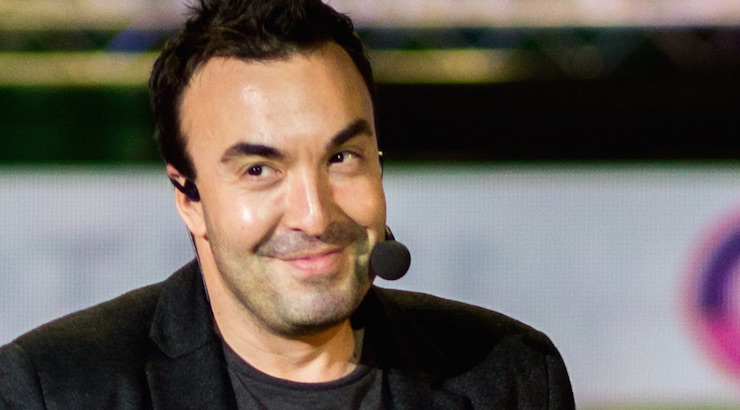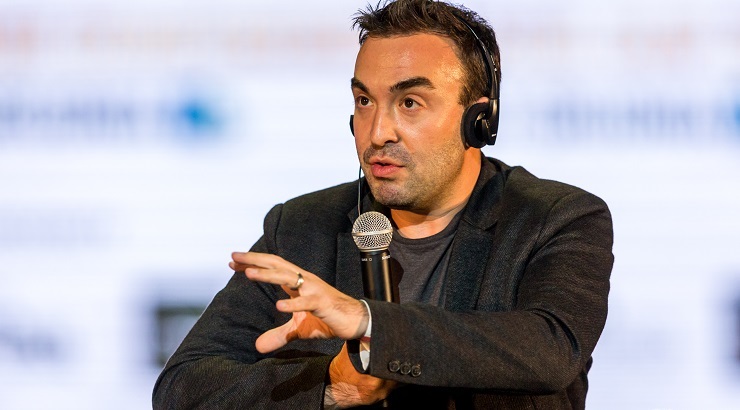Training The Soccer Brain: Simple Initiatives For Becoming A More Confident Soccer Player
When you want to be your best, it takes training, proper preparation, nutrition and hydration to make an impact in any soccer tournament. There is a lot that goes into performing at peak level. A global sport psychologist and author specializing in soccer, Abrahams is based in England and has helped hundreds of professional soccer players – many of them who play in the English Premier League (EPL). Abrahams knows what it takes and gives pro players advice – the importance of playing with focus.
Recently helping a Crystal Palace player succeed on the field, Abrahams has held contracts with QPR, Fulham, and West Ham United among other clubs and works quietly, behind the scenes with many coaches from top clubs across the Atlantic. What works for the professional players provides invaluable insight into youth player development. Here is Abrahams’ advice for being your best on the field.

First of all, becoming the best soccer player you can be is a process and a critical step is being a confident player. To become a professional, or even to become an elite youth player, you must have confidence in your abilities.
“You have to train, you have to play and you have think like there are no limits to your ability,” is what I wrote in Soccer Tough II. You have to have a soccer mindset. Soccer is as much a mental game as it is a physical discipline.
Soccer is a game of mindset. Here is a simple strategy to improve your performance as a soccer player. Never underestimate the impact of confidence.
Fun is a Forerunner to Confidence
Why are we more likely to choke and play with fear in a big match?
There are many reasons but one is that as a player you become too uptight.
Relaxation and intensity influence a player’s confidence. It is important that you slot into your perfect level of intensity before important games. Strive to play with fun and freedom – doing so lessens your tension levels prior to an important game.
Mistakes are Great
To my mind playing with fear is the opposite of playing with confidence.
The onset of fear is often as a result of players not wanting to make a mistake – they play tight, tense and rigid.
They second guess themselves. To help yourself enter a confident mindset, give yourself the permission to make mistakes. Try to be decisive – mistakes will be made you’ll play free – you’ll react and respond with confidence. You’ll be a match winner.
Train with Confidence
It sounds simple and it is simple but striving to train with confidence is imperative. No matter whether you’re doing a passing drill or some work on team shape, make sure that you’re keeping great body language, that you stay on your toes, alert, alive and lively.
Act confidently to become confident.
Remind Yourself of Your Best
Memory is a prime mediator of confidence. Remind yourself what you do, think and feel when you are playing at your very best – this is a useful way to maintain confidence.
Take just 5 minutes before or after a training session to recall (through mental pictures)your best games. Create big, bold and bright positive mental pictures
Rehearse Confidence
Mentally rehearse confident performances for 15 minutes a day away from training. What we now know in science is the brain can’t tell the difference between what is real and what is imagined. When a player imagines a confident performance the brain actually thinks that is happening. This process doesn’t replace physical training but reinforces it.
 A Mental Warm Up
A Mental Warm Up
Whenever I ask players about their warm up they tell me about a physical process.
Having a set of mental procedures before a game helps players switch on and increase performance confidence.
Take 2 minutes in the changing rooms to picture executing your role and responsibilities with confidence. When physically warming up make sure you’re on your toes, sharp, alert and lively.
Look confident, feel confident, be confident.
Here are three more tips from Soccer Tough II:
- When I am on the field, I need to communicate more positively when my teammate makes a mistake.
- I need to talk to myself better when I play, especially when I make mistakes — this will help me sustain my energy and confidence.
- I need to practice my focus during training — this will help me focus better during games.

Related Articles: Dan Abrahams on SoccerToday






